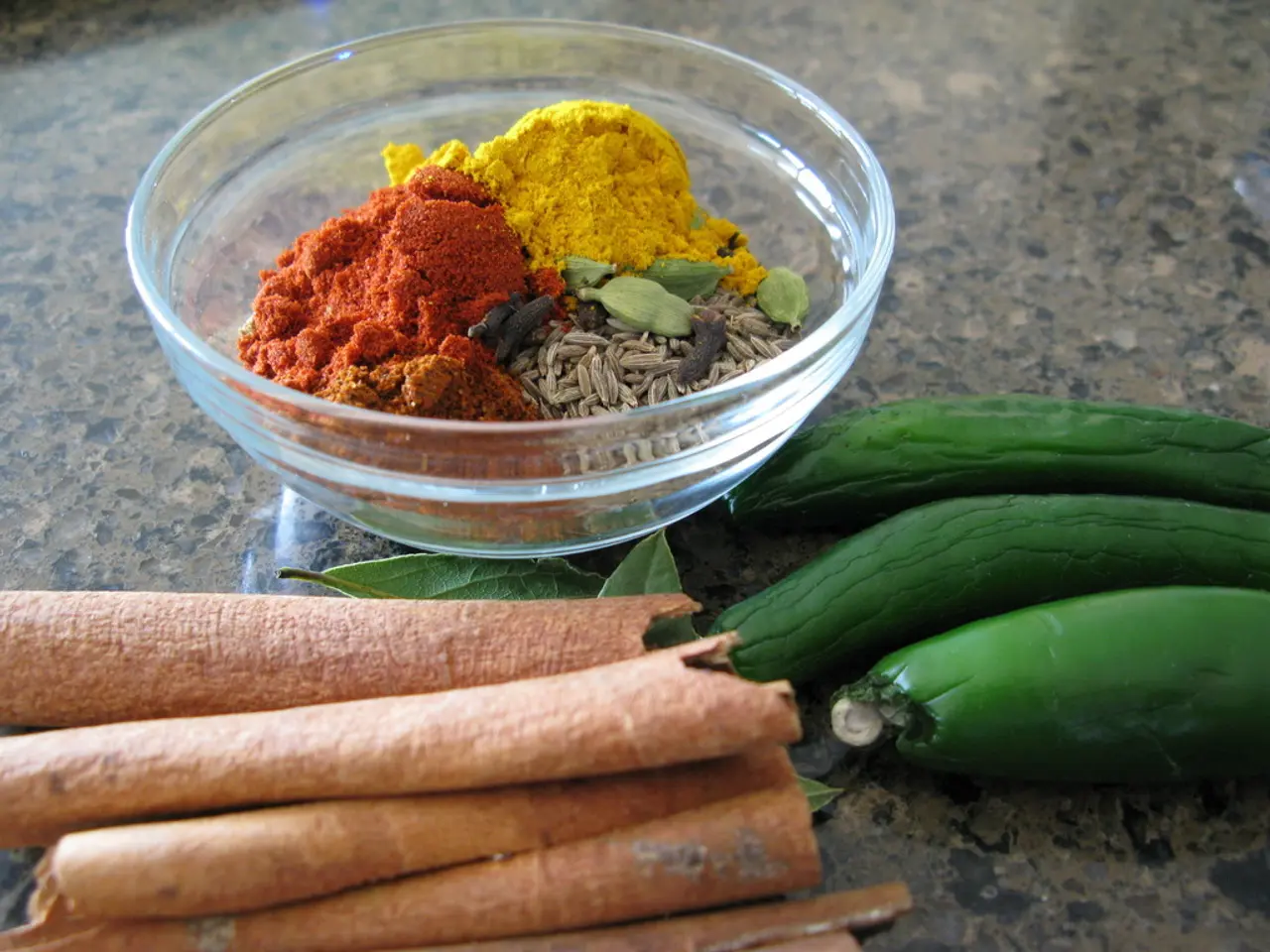Improving Testosterone Levels and Boosting Sexual Health with Key Herbs
In the realm of natural remedies, several herbs have gained a reputation for their potential to influence testosterone levels and sexual health. Among these are Tongkat Ali, Ashwagandha, Maca root, Fenugreek, Tribulus Terrestris, Ginseng, and Nettle root.
**Tongkat Ali (Eurycoma longifolia)**
With strong evidence supporting its effectiveness, Tongkat Ali is a standout herb for enhancing testosterone production. By inhibiting the enzyme aromatase, which converts testosterone to estrogen, Tongkat Ali allows more testosterone to circulate in the body. Clinical trials have demonstrated its ability to improve testosterone levels in men with low levels and boost sexual libido and erectile function in healthy men. It may also enhance muscular strength and sperm quality [1][3][4].
**Ashwagandha**
While not as directly impactful on testosterone levels as Tongkat Ali, Ashwagandha is widely recognized as an adaptogen that reduces stress and cortisol levels. This indirectly supports testosterone levels. It is also linked to improved sexual function and fertility in men through hormonal balance.
**Maca Root**
Maca root, traditionally valued for enhancing energy, mood, and sexual function, has limited direct evidence for a strong impact on increasing testosterone. However, it works more by promoting overall vitality, libido, and resilience rather than directly boosting testosterone [2][4].
**Fenugreek**
Fenugreek may stimulate testosterone production and improve workout performance and male health. Some studies suggest fenugreek supports libido and testosterone levels, though the data is mixed, and mechanisms may involve improving metabolic health and hormone regulation [2].
**Tribulus Terrestris**
The effects of Tribulus Terrestris on testosterone levels are debated and not consistent across studies. However, it may help enhance libido and overall well-being, making it popular in testosterone-support supplements [2][4].
**Ginseng**
Ginseng, like Panax ginseng, is known as an adaptogen that may regulate stress hormones and thereby positively influence testosterone balance and sexual performance [4].
**Nettle Root**
Nettle root is often used to inhibit the binding of testosterone to sex hormone-binding globulin (SHBG), potentially increasing free testosterone availability. It also supports prostate health and male hormone balance in some herbal formulations.
The table below summarises the impact of each herb on testosterone levels and sexual health, as well as the strength of the evidence supporting their effects:
| Herb | Impact on Testosterone | Effect on Sexual Health | Evidence Strength | |---------------------|---------------------------------|----------------------------------------------|--------------------------| | Tongkat Ali | Increases total and free testosterone, inhibits aromatase | Improves libido, erectile function, sperm quality | Strong human clinical data | | Ashwagandha | Indirect support via stress reduction | Enhances sexual function, fertility | Moderate, mostly indirect | | Maca Root | No strong direct testosterone boost | Boosts libido, energy, mood | Limited direct evidence | | Fenugreek | May stimulate testosterone | Improves male health and workout performance | Moderate but mixed | | Tribulus Terrestris | Debated direct testosterone effect | Supports libido and vitality | Mixed evidence | | Ginseng | May regulate stress hormones | Enhances sexual performance | Moderate, adaptogenic | | Nettle Root | May increase free testosterone by reducing SHBG binding | Supports male hormone balance | Traditional use, moderate |
In essence, Tongkat Ali shows the strongest evidence for boosting testosterone and improving sexual health, while others like Ashwagandha and Maca focus more on overall vitality and stress reduction, indirectly benefiting testosterone and sexual function. Fenugreek and Tribulus have mixed but promising effects mostly for libido and male vitality rather than robust testosterone increases [1][2][3][4].
References: [1] https://www.ncbi.nlm.nih.gov/pmc/articles/PMC3665023/ [2] https://www.ncbi.nlm.nih.gov/pmc/articles/PMC5664031/ [3] https://www.ncbi.nlm.nih.gov/pmc/articles/PMC3856838/ [4] https://www.ncbi.nlm.nih.gov/pmc/articles/PMC4833494/
- In the field of health-and-wellness, herbs such as Tongkat Ali, Ashwagandha, Maca root, Fenugreek, Tribulus Terrestris, Ginseng, and Nettle root are used in therapies-and-treatments to support mens-health and sexual-health, particularly in relation to testosterone levels.
- In particular, Tongkat Ali is known for its ability to increase testosterone production and improve sexual libido, erectile function, muscular strength, and sperm quality, based on human clinical data.
- Ashwagandha and Maca root are also popular for their effects on overall vitality, stress reduction, and enhanced libido, though their impact on testosterone levels tends to be more indirect. Fenugreek and Tribulus Terrestris may stimulate testosterone production and support male vitality, but the evidence for this is mixed. Nettle Root is used to increase free testosterone availability and support prostate health in some herbal formulations.







